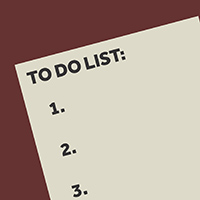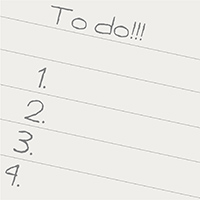Podcast: Play in new window | Download | Embed
Today’s Guest
Betsy Talbot joins the 24th session of Smart Brand Marketing with your host Tom Libelt.
In this episode we cover how to uncluttter your life, travel the world as a couple, make money online and ways in which you can regain freedom.
Enjoy!
How to Unclutter Your Life
Clutter. It does sound like an unattractive word. Hell, even the way it rolls off the tongue sounds offensive. It can even prove to be problematic for you on a personal and business-related level. It has also proved to be great fodder for TV shows like Hoarders but, aside from that, it has proven to be a bad model for lifestyle and business.
The obvious remedy to this problem will be to unclutter and, fortunately, for you, it’s a topic that is widely discussed in a number of blogs and magazines. But it does pose questions like “where to start?” or “what’s the point for all of this?”. To make this easy and coherent for you, let’s start with the basics.
Why Should You Unclutter?
It’s easy to see that you need to unclutter but the question is why you should do it in the first place. Like all things, you may unclutter the mess you made for a variety of reasons. Here are some of them.
- 1. To Give Space
 By nature, clutter takes up space which you could have used that space for more productive things. For comparison, let’s look at the living room of a dancing enthusiast and a hoarder.
By nature, clutter takes up space which you could have used that space for more productive things. For comparison, let’s look at the living room of a dancing enthusiast and a hoarder.
The former might feature less things but more breathing room while the latter is filled to the brim with whatever knick-knack you can possibly think of. Now, which of the two rooms are actually making full use of the space available? It’s definitely not the one that looks like Medusa’s Lair if she had taken a liking for cheap porcelain figurines.Aside from taking up physical space, clutter also takes up psychological real estate on your mind. For those that work at home, there is that need to maintain a disciplined state of mind. This problem is magnified the more things you put in a room. In time, you’d be fiddling around other things in that room as opposed to doing something more productive.
- 2. It Teaches You to Prioritize
 Do you know why a lot of hoarders can’t just dispose of everything? It’s because everything is valuable to them without even giving thought if they actually are. So, if everything is valuable, nothing is disposable. And if nothing is disposable, then clutter starts to take form.
Do you know why a lot of hoarders can’t just dispose of everything? It’s because everything is valuable to them without even giving thought if they actually are. So, if everything is valuable, nothing is disposable. And if nothing is disposable, then clutter starts to take form.
Uncluttering actually forces you to become selective, seeing the actual value for the things that you have to keep over the ones that you should throw away. Of course, this can eventually move from physical clutter to mental clutter as you start prioritizing your activities. After all, why should you waste your time doing things that you are not happy with or you don’t find to be rather productive?
- 3. It Improves our Tastes for Things
 The one drawback to holding on to everything you own is that, since nothing is disposable, you might find need for them in the future. This is highly unlikely, of course, and there is a chance that when you eventually have need for these things they have degraded so much that you storing them for future use was, well, useless.
The one drawback to holding on to everything you own is that, since nothing is disposable, you might find need for them in the future. This is highly unlikely, of course, and there is a chance that when you eventually have need for these things they have degraded so much that you storing them for future use was, well, useless.
Think of it this way: a cluttered closet is filled with a lot of things that you may or may not need. The point is that almost 90% of what is stored there is useless. An uncluttered closet, on the other hand, is filled with the things that you like and not just things that you once had a passing fling for. When you unclutter, you are basically conditioning your mind to become even more decisive.
- 4. It Saves You Money
 It’s obvious that you tend to save more if you buy less. However, even if you are hoarding a lot of stuff for little cost, it eventually becomes expensive once you have to get rid of it. One thing you have to remember that the price of one item is not limited to the one listed on its tag.
It’s obvious that you tend to save more if you buy less. However, even if you are hoarding a lot of stuff for little cost, it eventually becomes expensive once you have to get rid of it. One thing you have to remember that the price of one item is not limited to the one listed on its tag.
Does it need to be repaired regularly even if you are not using it? Do you need to pay someone else to move it just a few meters? Operational costs like these are what makes clutter expensive in the long run.
- 5. It MAKES You Money
 This is perhaps the most direct effect of decluttering as far as money as concerned. Since you think that these things hold value, why not dispose them by transferring their ownership to someone else? With cluttering, you make back a portion of what you spent in those items and still ensure that these items are safe in the possession of someone else.
This is perhaps the most direct effect of decluttering as far as money as concerned. Since you think that these things hold value, why not dispose them by transferring their ownership to someone else? With cluttering, you make back a portion of what you spent in those items and still ensure that these items are safe in the possession of someone else.
There is even the chance that you would determine the actual value for that item which is, surprisingly, far more valuable in recent years than when you bought it all those years ago. One of the biggest surprises in shows like Pawn Stars is when somebody brings in a piece to sell, thinking it’s just worth a few dollars at most, only to be proven wrong by an expert who will state it’s actually worth by the thousands or more. Sure, Rick and company would still lowball the customer but seeing that reaction upon hearing the actual value of their item is worth it.
- 6. Uncluttering Sets You Free
 Yes, it sound sappy. But uncluttering is actually the best way to give yourself freedom not just in the emotional sense but also in a practical sense. To make sense of this, imagine yourself trying to rearrange your room.
Yes, it sound sappy. But uncluttering is actually the best way to give yourself freedom not just in the emotional sense but also in a practical sense. To make sense of this, imagine yourself trying to rearrange your room.
Do you want to move your bed from the left side to the right? That would be easy only if, however, there was not a pile of magazines already occupying that place of the room. Do you want to dust off your Star Wars collection? You can’t do that without risking of toppling them like dominoes. They are so close to each other since you also put the clothes that don’t fit you in the same cabinet.
With uncluttering, you give your place a clean slate fit for you to redesign any way that you like. On the psychological side, it helps you pick and choose the activities which you find value in while removing those that are not. Now, you can do what you like and choose to own what you find value in. That’s the very application of the concept of freedom.
How to Declutter the Right Way
Unclutter can be a tall order especially if you have accumulated a lot of stuff over the years. So how do you go about it? Here are a few tips to make things easier for you.
For the Room
- 1 Item per Day
 The one hurdle to uncluttering is that, eventually, you will lose interest in it and fail in completing the process. There’s just too many things to dispose that you give up halfway through. To make the task less daunting for you, commit yourself to disposing at least 1 item per day. If you have more than 300 things hanging in your room, then that means you have an entire year to unclutter.
The one hurdle to uncluttering is that, eventually, you will lose interest in it and fail in completing the process. There’s just too many things to dispose that you give up halfway through. To make the task less daunting for you, commit yourself to disposing at least 1 item per day. If you have more than 300 things hanging in your room, then that means you have an entire year to unclutter.
It does look slow but the best kind of changes are those that are gradual. Slowly, you will free up space for your room until it’s completely clutter-free and ready for repurposing.
- Make a List
 An effective way of making uncluttering a sustainable activity for you is you yourself provide some structure for it. Divide your place into several sections and list every item out there that you have to dispose. Of course, you’d have to put schedules for these areas to make your mind commit to finishing each area on time.
An effective way of making uncluttering a sustainable activity for you is you yourself provide some structure for it. Divide your place into several sections and list every item out there that you have to dispose. Of course, you’d have to put schedules for these areas to make your mind commit to finishing each area on time.
Aside from allowing you to do an inventory of the things you own, the list helps you determine which items are for you to keep and which ones are to be disposed. You might even surprise yourself and discover things that you thought were lost just collecting dust on the floor for years.
For the Mind
- Set Your PrioritiesA good way to take control of your life is to make a list of what activities are the most important to you. To do that, first you must list down your aspirations and life goals and then list all of your activities. Once that is done, you will then have to compare and contrast all of your activities to see if they help you meet your goals.You can list your activities by order of their relevance to your goals with the top being the most relevant and the bottom being the least. Take note that your list might change as time passes and your priorities shift but the point here is to organize your activities and check if all your activities are still serving the larger goals you have set for your life.
- Write it Down
 Keeping a journal might look like the most cliché thing ever when it comes to self-help but writing your progress tends to help you in a number of ways. First, it helps you unload your mind and organize your thoughts. The reason why your mind gets overworked is because you tend to let your thoughts pile on top of each other. By writing your thoughts down, you can vent out and then shift your thoughts into other pressing issues.
Keeping a journal might look like the most cliché thing ever when it comes to self-help but writing your progress tends to help you in a number of ways. First, it helps you unload your mind and organize your thoughts. The reason why your mind gets overworked is because you tend to let your thoughts pile on top of each other. By writing your thoughts down, you can vent out and then shift your thoughts into other pressing issues.
Next, it helps you keep track of your progress. A past time amongst writers is actually reading the work they’ve done over the years and taking not of the subtle changes in their writing. Sure, they might expose themselves to a lot of cringe (especially reading those entries made when they were still teenagers) but it does serve as a good way to pass time.
For you, this is an opportunity to take a look back and monitor your progress. If you see the gradual changes made on the way you think (and write), you might just feel a whole lot better about yourself.
- Never, EVER, Multitask
 Anyone who has ever told you to multitask is either not aware of the potential damage it can bring to you or just wanting to see you fumble yourself through the finish line. If you are running a business, for example, you might have to do a lot of things like meeting with clients or closing deals but rarely will you have to do all of these at one time.
Anyone who has ever told you to multitask is either not aware of the potential damage it can bring to you or just wanting to see you fumble yourself through the finish line. If you are running a business, for example, you might have to do a lot of things like meeting with clients or closing deals but rarely will you have to do all of these at one time.
Multitasking is only good in short bursts in order to keep your mind alert. However, if comprises your entire strategy in life, then you are bound to make a lot of clutter. The best alternative to multitasking is to finish one item after another in your to-do list as quickly as you can. Work your way from the things require your attention the most down to the less-important stuff. This way, you can keep your senses sharp without leaving you overwhelmed.
- Let Go
 This is the hardest thing about decluttering as you are virtually cutting off things and activities from your life. It can be hard for people who accumulated a lot to let go of whatever they had stored but, always remind yourself this: if these things were actually useful to you, why did you just let them gather dust and deteriorate in your room?
This is the hardest thing about decluttering as you are virtually cutting off things and activities from your life. It can be hard for people who accumulated a lot to let go of whatever they had stored but, always remind yourself this: if these things were actually useful to you, why did you just let them gather dust and deteriorate in your room?
If these activities meant something to you, why do you find yourself hesitating to take part in them? Once you understand that you don’t actually see a lot of value in these things, you can start the process of letting go of your clutter and move on to bigger opportunities.
To Wrap Things Up
Dealing with clutter is not exactly easy. It will take a lot of time and dedication on your part. However, this is the only way that you will ever free yourself from anything holding your back from your life or any venture you have planned.
With effort, you might just unclutter every part of your life and open yourself up to new activities and passions that will yield you a lot of returns in the long run.
Have you tried dealing with clutter yourself? What other methods have you used to declutter your life? Let us know in the comments section below!
RESOURCES
- Follow Betsy on Twitter
THANK YOU FOR LISTENING!
To get more SBM content sent directly to your device as they become available, you can subscribe on iTunes or Stitcher!
Also, reviews on iTunes are extremely helpful and greatly appreciated! I read each and every one of them, and feel free to share your URL there so I can contact you later on and say thanks!



